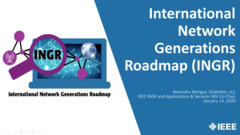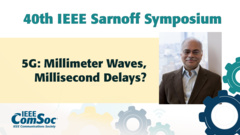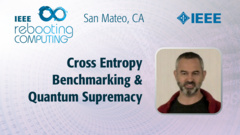IEEE Future Networks: 5G and GDPR - Just Because You Can Capture Data Does Not Mean You Can Use It
5G technologies will make it possible to interconnect with billions of devices and sensors globally, further fueling the growth of large scale dynamic decentralized/distributed data processing business models. These dynamic models will generate significant business opportunities as well as potential liabilities from failure to comply with centralized data protection requirements like those under the EU General Data Protection Regulation (GDPR). The GDPR, which goes into effect on 25 May 2018, includes fines as high as 4% of annual global gross revenues for data controllers and processors who fail to satisfy its requirements. Learn how new dynamic data protection requirements under the GDPR can help to resolve these conflicts and help to facilitate adoption of 5G capabilities.
5G technologies will make it possible to interconnect with billions of devices and sensors globally, further fueling the growth of large scale dynamic decentralized/distributed data processing business models. These dynamic models will generate significant business opportunities as well as potential liabilities from failure to comply with centralized data protection requirements like those under the EU General Data Protection Regulation (GDPR). The GDPR, which goes into effect on 25 May 2018, includes fines as high as 4% of annual global gross revenues for data controllers and processors who fail to satisfy its requirements. Learn how new dynamic data protection requirements under the GDPR can help to resolve these conflicts and help to facilitate adoption of 5G capabilities.
 Cart
Cart Create Account
Create Account Sign In
Sign In





